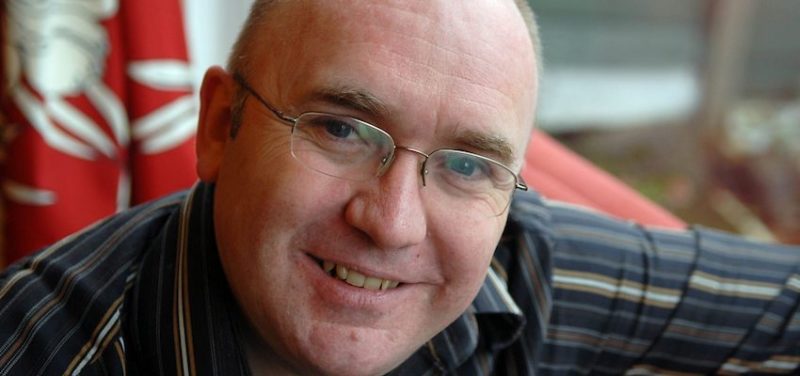A ‘mischief maker’ tells all

Navigating my way through the maze of Manchester’s streets, my mind was filled with intrigue. I was on my way to meet Andrew Graystone, a man who accidentally became something of an urban legend.
Back in 2019, a gunman walked into two mosques in Christchurch (New Zealand) during Friday prayers and shot 51 people dead – and wounded 49 others.
Graystone wanted to be near his Muslim neighbours for their own Friday prayers and made a last-minute decision to go and stand outside his local mosque holding a simple handwritten message. It read: “You are my friends. I will keep watch while you pray.”
Someone photographed him and shared the image on social media asking “Who is this guy?” The photo was shared again. And again. Within hours Graystone had gone viral. He was inundated with over 50,000 messages, millions of likes and retweets, much media attention and a message of thanks from the Prime Minister of New Zealand, Jacinda Ardern. Perhaps, like me, you saw his photo online?
Graystone was asked to recount the events of that day to a group of people, and eventually, he wrote the story down.
Bemused
A friend prompted him to capture the other times in his life when he’d done something a little bit unusual. The gathering up of these seemingly random stories made Graystone aware that he was in the habit of doing things with unpredictable results. He realised these patterns had run deeply throughout his whole life. The stories are told in his playful book Faith Hope and Mischief, which was published in August 2020 and identifies these tiny acts of rebellion with the overarching term ‘everyday activism’.
“My family will confirm that I was bemused by the whole experience,” he writes in the book. “The whole thing was unplanned, unexpected and completely disproportionate. The simple message I had tried to pass on is that friendship overcomes fear. Hatred doesn’t generate itself. It is a by-product of fear; fear of someone who is just slightly different from me.”
Intrigued by the title of the book I asked him what does mischief mean to a Christian?
“Faith, Hope and Mischief comes from the phrase which Paul uses in 1 Corinthians 13, where he talks about faith, hope and love,” explains Graystone. “I’m saying that mischief is an expression of love. Mischief, like love is doing things that you don’t have to do that are unexpected and unpredictable and with positive intent, but without necessarily knowing what the outcome’s going to be. That’s true of mischief and that’s true of love. You do things that you don’t have to do that have positive intent, that are unexpected and you don’t know what the outcome’s going to be.
“Loving someone is risky, it’s making yourself vulnerable. Mischief is having a go, trying it, taking the risk. And what’s the risk? Very often the risk that I’m afraid of is that I’m going to look stupid.”
Encouraged
Graystone seems to be a deep-thinking man of faith, clearly saying what he means, with no duplicity of intent about him. Rather shy, but courteous and friendly, occasionally pausing before answering my next question. Rubbing his whiskered chin his eyes would briefly search the red brick wall behind me as if looking for the very truest answer. Twice, with some degree of boyish delight, he glanced skyward and simply answered: “I don’t know,” appearing to relish the opportunity of thinking about something which he hadn’t previously thought about.
Media attention has mostly settled down since that time when tens of thousands of people got in touch to say that they were encouraged, reassured or given a little bit of hope. But Graystone isn’t concerned about the results, he continued: “I think we can be a little bit obsessive about wanting to know what the outcomes are going to be. I know some people have to measure what they’re doing but outcomes are not our business necessarily.” He added: “I think God sometimes uses the spaces where we sit and ask ‘how does this feel for someone else?’, which is a really good question to be asking.”
Graystone has lived in a vibrant multicultural area of Manchester for over two decades. Though not a native northerner he describes himself as having become a true ‘manc’ who embraces the city and wouldn’t want to live anywhere else. We drink tea and talk some more about mischief and everyday activism.
He tells me with heartfelt warmth: “My family, my community and my church community are really important to me. I’m very committed to doing things together. The one person who could stop me from doing something daft would be my wife, unfortunately, she’s more likely to encourage me!”
To find out more about Andrew Graystone's book, please click here.

Val Fraser is a freelance journalist based in the northwest of England.
